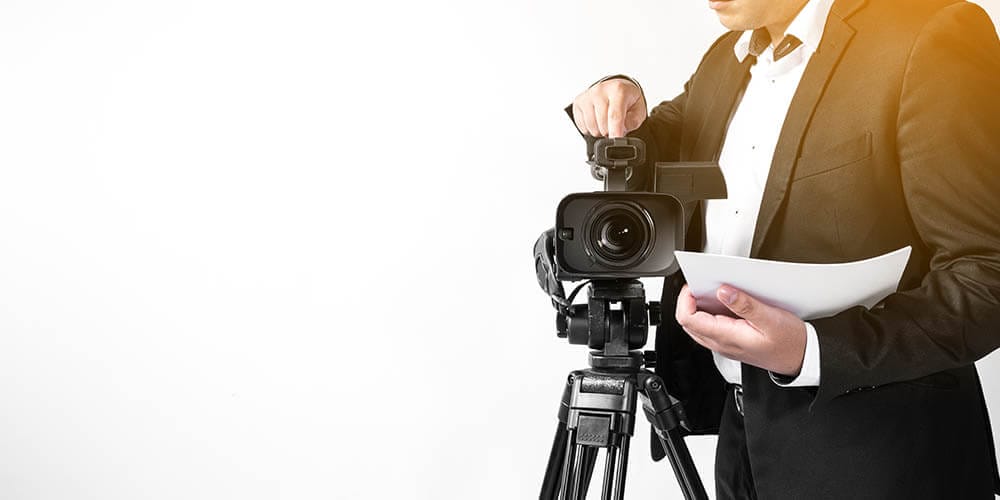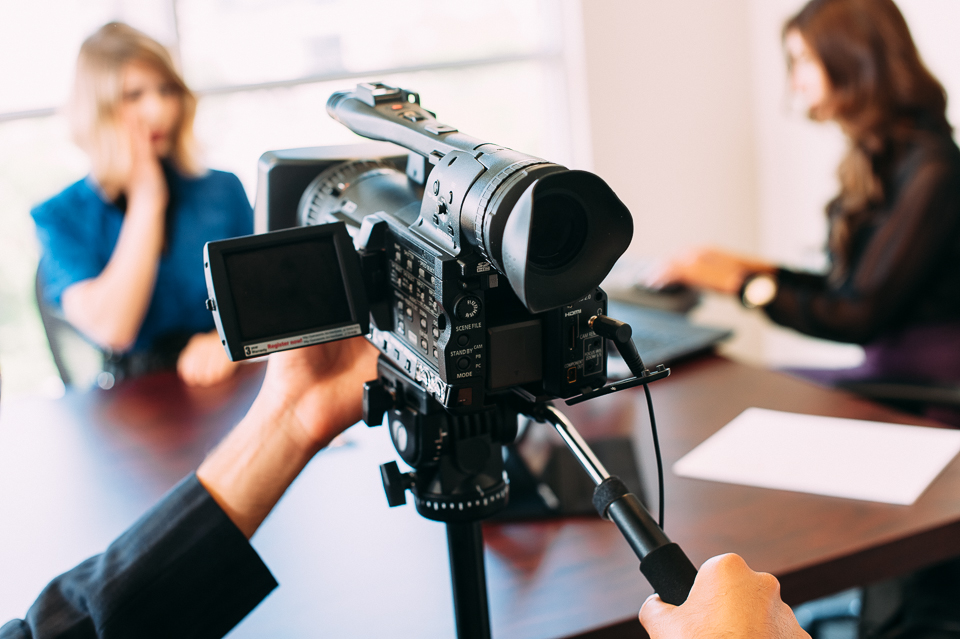The Role of Legal Videography in Depositions and Trials
Lawful videography has actually emerged as a vital tool in both depositions and trials, providing a multifaceted approach to recording witness testaments. As lawful experts progressively recognize its worth, it motivates a deeper evaluation of how these aesthetic records can influence juror perceptions and test results.
Significance of Legal Videography
Lawful videography plays an essential role in the documentation and presentation of depositions and tests. This specific field incorporates technological skills with legal knowledge to develop a trusted record of proceedings that can dramatically affect situation outcomes. The aesthetic element of legal videography improves the understanding of witness testimony, allowing jurors and courts to observe not only the talked words however also the attitude, emotions, and body movement of the witnesses.

The significance of legal videography expands past the courtroom; it also plays an essential duty in maintaining proof for future recommendation, whether for charms or further lawsuit. As such, its assimilation into the legal procedure is necessary for making certain a reasonable and accurate depiction of the truths, ultimately adding to the pursuit of justice.

Process of Legal Videography
While catching the subtleties of depositions and tests, the process of lawful videography involves a number of important actions that guarantee high-grade, accurate recordings. At first, an expert lawful videographer prepares by assessing the case materials and comprehending the details needs of the deposition or trial. This preparation consists of familiarizing themselves with the participants and the context, which aids in capturing important information.
On the day of the recording, the videographer establishes the needed tools, which commonly consists of high-def electronic cameras, microphones, and correct lights. Ensuring optimal angles and audio top quality is critical, as it straight influences the performance of the recording. The videographer connects with lawyers and participants to establish protocols, ensuring that every person recognizes the recording procedure.
During the deposition or trial, the videographer meticulously videotapes the proceedings, paying attention to both spoken and non-verbal hints. legal videography. This consists of capturing the behavior and responses of witnesses and attorneys. After the session ends, the videographer may edit the footage for clearness and compliance with lawful criteria, creating an end product that precisely shows the proceedings for future referral and use in legal contexts
Advantages in Depositions
The consolidation of videography in depositions uses many advantages that boost the general process of collecting evidence. One key benefit is the capacity to catch witness testimonies with aesthetic and auditory integrity, offering an extra precise representation of the witness's demeanor, tone, and body movement. This multidimensional approach permits attorneys and courts to evaluate reliability better than traditional written records alone.
Additionally, videographed depositions function as a powerful device for maintaining statement. Needs to a witness ended up being inaccessible for trial, their taped deposition can be played in court, ensuring that their evidence continues to be available and pertinent. This aspect substantially minimizes the danger of losing essential info that can impact situation end results.
Furthermore, using lawful videography advertises better preparation for lawyers. Evaluating video clip footage permits lawful teams to evaluate and fine-tune their approaches, recognizing strengths and weaknesses in their situations. This preparatory benefit can cause even more engaging discussions in court.
Lastly, videography enhances the overall expertise of basics the deposition process, instilling confidence in clients regarding the thoroughness of their legal representation. By leveraging technology, legal professionals can substantially boost the effectiveness of depositions.
Influence On Tests
In several tests, the assimilation of videography can dramatically affect the discussion of evidence and the jury's perception. Legal videography captures witness testaments and critical proof in a vibrant layout, enabling jurors to engage with the material on multiple degrees. This aesthetic element improves the storytelling aspect of a test, giving context and psychological resonance that traditional text-based proof might lack.
Furthermore, video recordings can work as effective tools for impeachment during interrogation. When disparities develop between a witness's previous declarations and their court testimony, video clip evidence offers an objective referral that can persuade jurors' opinions. This immediacy and quality can boost the trustworthiness of a celebration's story while all at once weakening opposing arguments.
In addition, using videography can help enhance complex info, making it extra obtainable to jurors that may have a hard time to grasp intricate information offered solely through spoken testament. By incorporating visuals with auditory details, lawful videography can enhance retention and understanding, inevitably influencing the court's decision-making process. The effect of videography in tests extends past plain aesthetic appeals; it plays a crucial duty in shaping the lawful landscape and end results.
Future Trends in Legal Videography
As we look toward the future of legal videography, numerous arising trends guarantee to improve its duty within the courtroom. One considerable fad is the integration of man-made knowledge (AI) in video evaluation and editing - legal videography. AI can improve the process of recognizing vital moments in tape-recorded depositions, enabling lawyers to promptly access relevant content, thus improving performance in case prep work
Additionally, the rise of useful link digital reality (VR) and boosted reality (AR) technologies is expected to transform exactly how jurors experience evidence. By immersing jurors in a simulated environment, these technologies can offer a much more profound understanding of complicated situations, resulting in more educated deliberations.

Additionally, the boosting need for remote depositions, sped up by the COVID-19 pandemic, will likely continue. Legal videographers will certainly require to adapt to new software and systems to make certain high-quality recordings in digital setups.
Finally, the growing focus on information safety will necessitate more stringent protocols for saving and sharing video clip evidence. As the lawful landscape advances, legal videographers must remain abreast of these patterns to preserve their relevance and performance in the judicial process.

Conclusion
In recap, lawful videography serves a vital function in the judicial process, boosting the integrity of depositions and tests. By capturing the nuances of witness testaments, this medium not only maintains essential evidence yet also aids in offering informative post info effectively to jurors. The significance of aesthetic documentation in assessing reputation and helping with interrogation can not be overstated. As modern technology continues to develop, legal videography is positioned to more transform its role within the legal landscape.